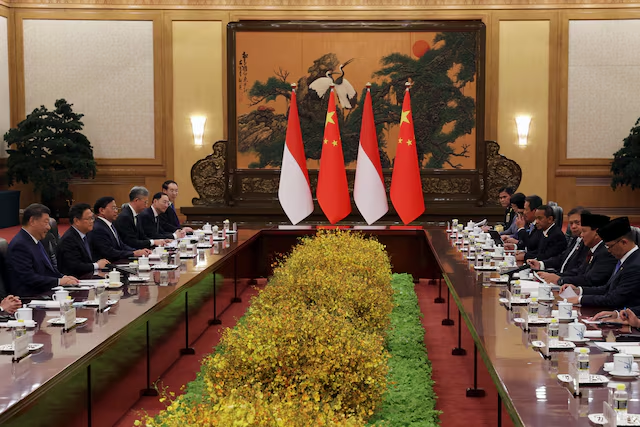China and Indonesia signed agreements worth $10 billion during the Indonesia-China Business Forum held in Beijing on Sunday, marking a significant step in their growing bilateral relationship. The deals cover a wide range of sectors, including green energy, technology, food, and biotechnology. This event followed a key meeting between Chinese President Xi Jinping and Indonesian President Prabowo Subianto, who is visiting China for the first time since assuming office in October. Notably, Prabowo’s choice of China as his first official visit as president emphasizes Indonesia’s commitment to strengthening its strategic ties with Beijing.
In a joint statement released after the leaders’ discussions, China and Indonesia outlined plans to enhance cooperation in emerging sectors such as new energy vehicles, lithium batteries, photovoltaics, and the digital economy. They also agreed to work together to ensure the security of global mineral supply chains and support the global energy transition. These agreements align with both countries’ broader efforts to address climate change and secure sustainable growth.
One of the key deals signed during the forum was between Chinese battery materials producer GEM and PT Vale Indonesia. The agreement, witnessed by President Prabowo, involves the construction of a high-pressure acid leaching plant in Central Sulawesi, a crucial step in securing nickel resources. Indonesia, as the world’s largest nickel producer, plays a pivotal role in the global electric vehicle supply chain, with Chinese companies such as Tsingshan Holding Group and Zhejiang Huayou Cobalt dominating the sector.
In the technology space, Indonesian tech giant GoTo Gojek Tokopedia formed partnerships with China’s Tencent and Alibaba to advance cloud infrastructure and foster digital talent development in Indonesia. These collaborations are expected to boost Indonesia’s digital economy and increase its technological capabilities.
The two countries also agreed on several measures to improve connectivity, including the introduction of multi-entry long-term visas and the expansion of direct flights between the two nations. Additionally, the agreements included cooperation in the housing sector and initiatives to increase exports of fresh coconuts from Indonesia to China.
These developments reflect the deepening ties between China and Indonesia, positioning them as key partners in the global push for green energy solutions and digital innovation.













